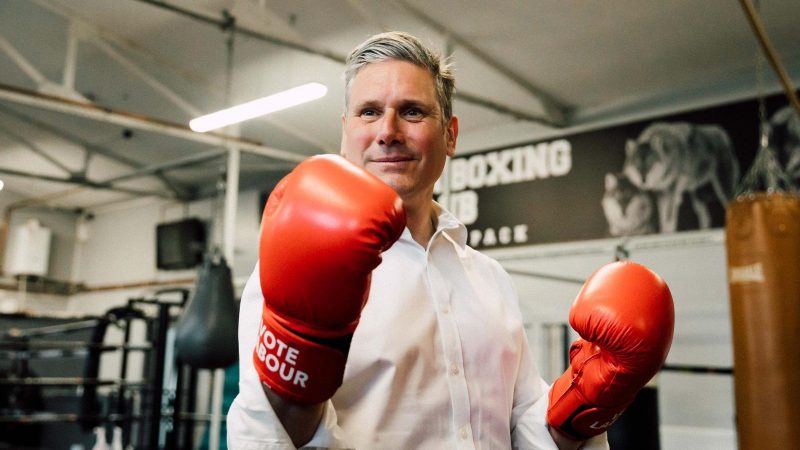
Keir Starmer has vowed to “sweat blood over months and years” to earn “respect” from voters. The Labour leader made the stark and rather gruesome promise during an interview with the BBC’s Laura Kuenssberg after meeting with former Labour supporters in Blackpool. The North West of England was the first stop on his summer tour across the country, which will see him hold a series of meetings, informal discussions, roundtables and phone-ins to local radio stations in different parts of the country every week. The purpose is to spend more time outside of Westminster, “taking Labour’s offer on the road and direct to voters”, after being stuck delivering speeches to his living room furniture since the start of the pandemic.
One of the top lines that the BBC took away from the session and subsequent interview is that Starmer “has acknowledged the party has a trust issue with its former voters”. Like the new ‘Renaissance’ project chaired by frontbencher Stephen Kinnock, the focus of these summer visits is former Labour voters who have turned away from the party but are still interested enough to engage with it. This is important work ahead of the next general election, but necessarily lends itself to negative narratives and problems from the past, as voters are given the chance to explain why they have left Labour – or rather feel abandoned by it. On Thursday night, Blackpool voters raised Tony Blair’s Iraq war, Gordon Brown’s Gillian Duffy moment and Jeremy Corbyn’s leadership.
The danger is that Labour could continue to wallow in self-hatred as a result, but I’m assured that the leadership is aware of this risk and it is not their intention to keep apologising for the party’s existence. After all, repeatedly telling the public that Labour isn’t trusted, isn’t united, isn’t successful, may come across as refreshing honesty at first – see Lisa Nandy’s opening pitch as a leadership candidate last year – and recognising what has gone wrong is crucial. Linger on Labour’s faults for too long without moving the conversation on to the next stage, however, and people will just begin to believe the party is as crap as you say it is. And there simply isn’t enough time for that: many in Labour reckon the next general election could be 2023, or even sooner.
That’s why this isn’t a listening exercise. Starmer’s two-day trips, which are designed to be more substantial than the classic politician’s visit donning a hard hat for an hour, will help the leader gather intel on what voters are thinking and broadly get a mood check, but he will also be testing out Labour’s arguments. Every week, there will be a theme; this week it was young people. Starmer shared three policies with the Blackpool group: a jobs guarantee for under 25s, a recovery fund for children’s education and a ‘buy British’ plan. These are some of the most significant commitments Labour has made under his leadership, spending-wise and thematically.
According to the BBC, the proposals got a mixed reception. Some said he was “wasting his time”, while others liked the catch-up education plan. Giving his impression, Starmer said: “I could see tonight what people wanted to know was: ‘That sounds good. It sounds like what I want to hear. But can you earn my trust over the next few months and years into the next general election in order to make me vote for you?’ And that is what I will do. I will sweat blood over those months and years to earn that respect.” One voter described the opposition leader as “charming but naive”. Another said his main task was “getting the party to work together”.
As more and more restrictions are lifted, Starmer is finally proceeding to the next stage of his leadership, working on Labour’s vision and messaging. Yet the BBC interview was dominated by questions over whether Corbyn would be readmitted or forever chucked out of the parliamentary party – something that the Labour leader repeatedly insisted was up to the chief whip. You can read the exchange in our write-up. Labour infighting is a go-to story for journalists as it’s gossipy and there is so much of it. But if making electoral gains is Starmer’s main objective, rather than changing the party internally before someone to his right takes over, he must find a story to tell that is more compelling than that one.
Sign up to LabourList’s morning email for everything Labour, every weekday morning.



More from LabourList
‘Council Tax shouldn’t punish those who have the least or those we owe the most’
Two-thirds of Labour members say government has made too many policy U-turns, poll reveals
‘Two states, one future: five steps on the path to peace for Israelis and Palestinians’